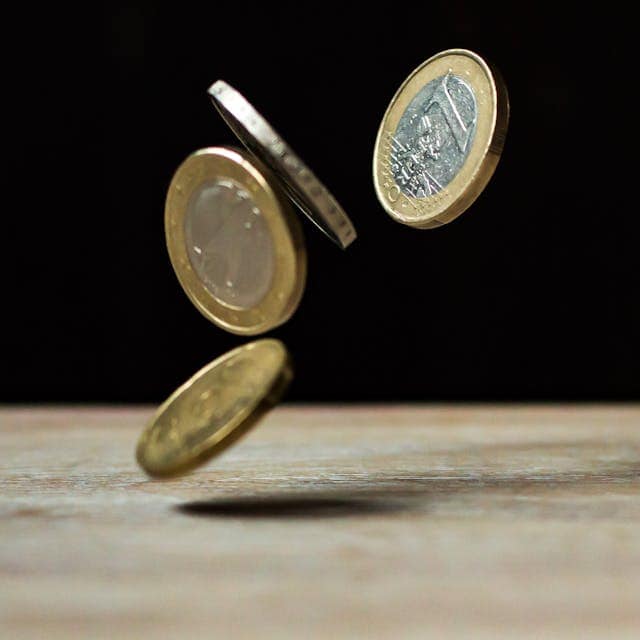Riba – riches or ruin? – Tarawih reflections 12

Charity – expect your reward from Allah alone
In Surat al Baqarah, Allah talks about infaq – spending, giving for Allah’s sake. When you give in charity, you only expect reward from Allah. Giving for Allah’s sake means you give for free – you don’t give because you are expecting anything back. When you give for Allah’s sake, expecting nothing from anyone but Allah.
Riba – expecting return on money from people
In tonight’s verses, Allah is talking about the opposite. Those who give and expect to be given money in return – which is riba. This is the opposite of giving for Allah’s sake with no return from the one you gave money to. Instead, you charge money for the use of money. This is what used to be called usury but is now called interest. Riba is haram. The prohibition of interest is clear. It is not just drinking alcohol and eating pork or killing that is haram. Consuming riba and dealing with riba is also haram.
Jabir (may Allah be pleased with him) narrated that Allah’s Messenger (ﷺ) cursed the one who accepts usury, the one who gives it, the one who records it and the two witnesses to it, saying, “They are all the same.” [Muslim]
Widespread use and gradualism
Riba was a very common practice in Arabia, and worldwide but as the Quran was revealed to the Arabs first it was addressing their practice. It was so prevalent that riba was not prohibited in Makkah, not in the beginning in Madinah. The prohibition came towards the end of the Prophet’s (peace upon him) life. It was part of the gradualism with which Islamic rulings were introduced. As their faith became stronger, Allah revealed the rulings they could cope with bit by bit. He was preparing the Ummah to be better.
Prohibition of riba
This prohibition was among the last things outlawed by the Prophet (peace be upon him) in his Farewell Sermons, during his Hajj – Hajjatul Wada’. He strongly emphasised and confirmed the importance of the prohibition of riba.
Beginning with the riba owed to his uncle Abbas, who was one of the leaders and one of the wealthy people. He used to lend money and charge interest for delayed repayments. For example if you had to repay a loan in 10 months, but took 11 or 12 or more, you would pay for the delay. Allah made this practice haram.
The difference between riba and trade
Some people like to say, “The riba which Allah prohibited in the Quran was the jahiliyah riba. It has nothing to do with the interest in the bank, the interest in the bank is a different story.” They start philosophising and justifying the interest we have these days.
However, it’s no different. Riba is riba. Whether it is jahiliyah riba or modern day bank interest. It is haram. On a scale of how bad it is, Allah declared war against only 2 people – those who fight His awliya‘, (people very close to Him) and those who consume riba.
Declaration of war
In ayah 279, Allah says, if you are not following the command of Allah, then Allah is declaring war against you.
فَإِن لَّمۡ تَفۡعَلُوا۟ فَأۡذَنُوا۟ بِحَرۡبࣲ مِّنَ ٱللَّهِ وَرَسُولِهِۦۖ وَإِن تُبۡتُمۡ فَلَكُمۡ رُءُوسُ أَمۡوَ ٰلِكُمۡ لَا تَظۡلِمُونَ وَلَا تُظۡلَمُونَ﴿ ٢٧٩ ﴾
But if you do not (give it up), then listen to the declaration of war from Allah and His Messenger. However, If you repent, you may have your principal back, neither wronging, nor being wronged. (Al-Baqarah, 2: 279)
Don’t be duped by the banks and take interest to grow your money. You can, it’s your decision. But the bank is using your money to lend it for manifold profit for themselves. And Allah declared war against them. Moreover, He will take away the barakah of that money. Allah increases and blesses sadaqah, but diminishes and removes the barakah from riba. Somebody might have plenty of wealth, but he will be afflicted by diseases, and calamities. His children, his business, and his well-being will suffer. Allah will take the barakah out of his money. Do not think that taking riba will bring growth in wealth. It is waging war with Allah.
Allah is talking about commercial transactions. People would argue with the Prophet (peace be upon him) asking him what was the difference between buying something worth £100 and paying for it later and taking a loan and paying it back later? If you give somebody a loan and charge him £10 for it, the profit margin is £10. However Allah says He has made sale halal and riba haram. Sale is a product or a service. Whereas in riba, what are you selling? Nothing. You are just charging money for the use of money.
Towards the end of these verses, Allah says if you declare tawbah, you can keep your capital but you have to get rid of or distribute the riba. This is what the Prophet (peace be upon him) did, in Hajjatul Wada’ when he said “And the first riba I dropped is the riba of my uncle Abbas.” It was a big amount of money by the way. Abbas did not say, “No I don’t approve this, what did you do?” Abbas was obeying the Prophet (peace be upon him). Although he was his uncle, this was the Prophet (peace be upon him)!
Allah is teaching us how to deal with each other with fairness.
Riba is oppression
He mentioned towards the ends of these verses, the reason behind the prohibition of riba is oppression, dhulm. Because you have money you can suck the blood out of other people. Don’t do this. On the other side, you see before these verses, you can give sadaqah instead of charging riba. You see the element of compassion, the element of collaboration, support, helping one another. It’s not greed, viciousness, evil, and dunya is what you are after. Allah is teaching us how to be compassionate and fair. So this is why riba is haram, because it’s about prohibition of oppression, in any shape or form. Whether it’s financial oppression, or political oppression, or social oppression, all forms of oppression are haram.
In the financial sector, riba is dominant in oppression. You see the effect of riba on our finances, and on the whole world. It’s just jeopardising the whole economy.
In order to stop the inflation, they increase the interest. With the promise that the people will stop spending and go into saving. This is how things can go down.
The bottom line is that Allah is teaching us how to live a halal life and how to support one another and help one another. Stop taking or paying interest. Think of other ways to improve and grow your economy rather than charging supposedly low interest, making the rich richer and the poor poorer, which will always be the case, unless we stop the riba.
We ask Allah to protect us from all forms of oppression and all forms of riba, ameen
Based on the reflections of Shaykh Haytham Tamim
Transcribed by Zayna Sheikh
Related posts
- The forces of Allah and the fate of the falsifiers
- Climbing the stairs: How to continue your spiritual journey post-Ramadan
- How Allah strengthens the hearts of believers
- Why should you follow up one good action with another one?
- Don’t be a Ramadani person – Be a Rabbani person.
Recommended Posts

The forces of Allah and the fate of the falsifiers
April 26, 2024

How Allah strengthens the hearts of believers
April 19, 2024

